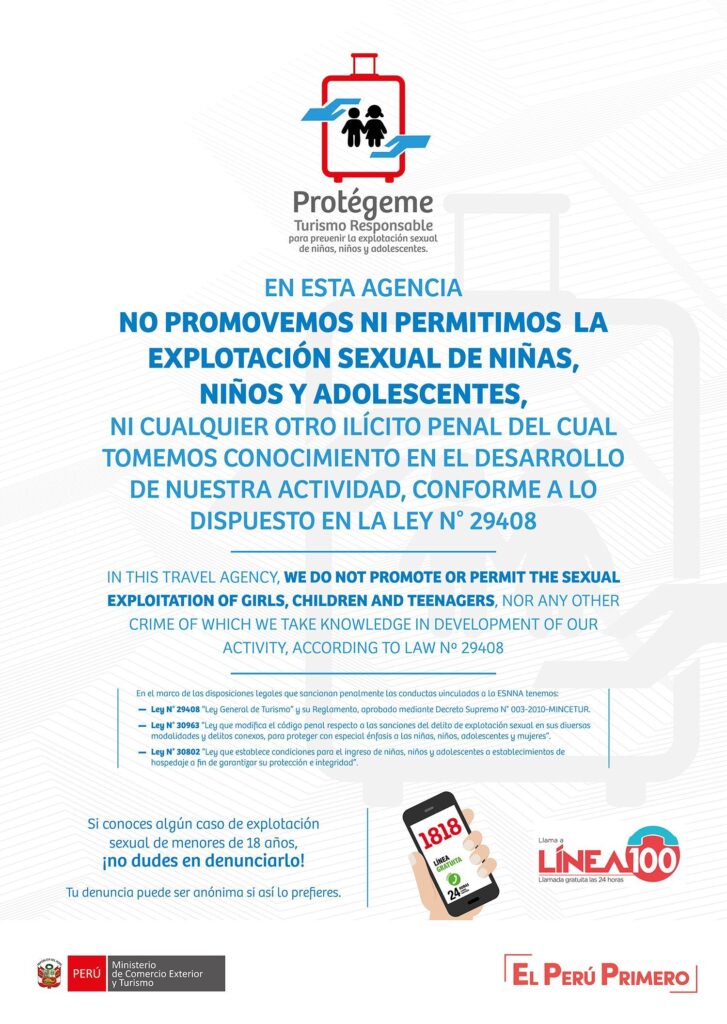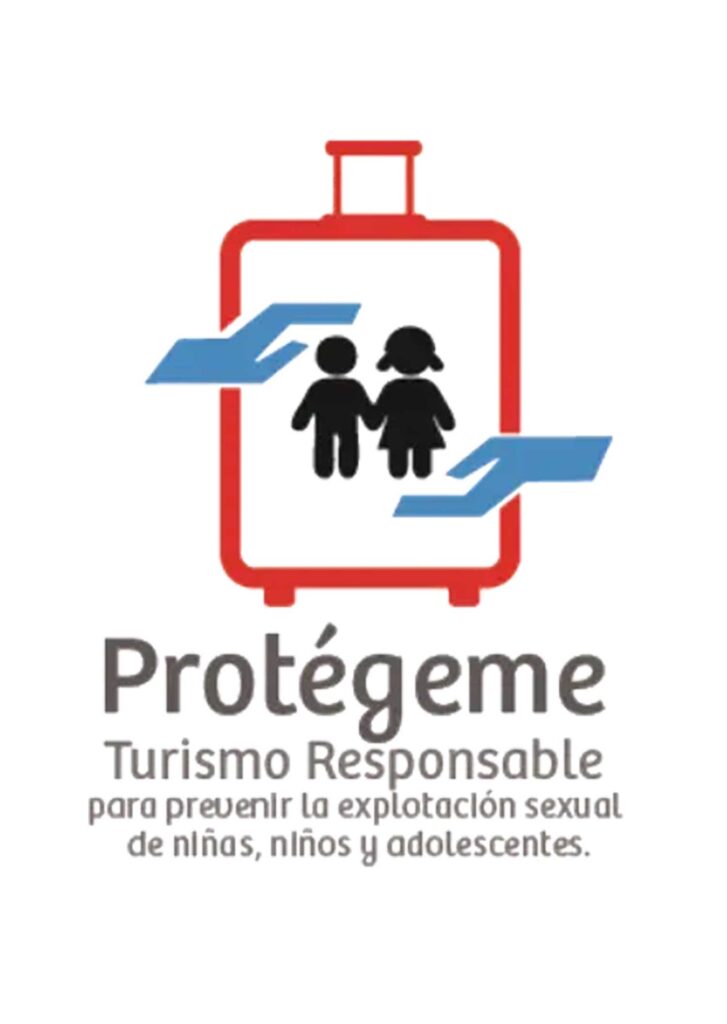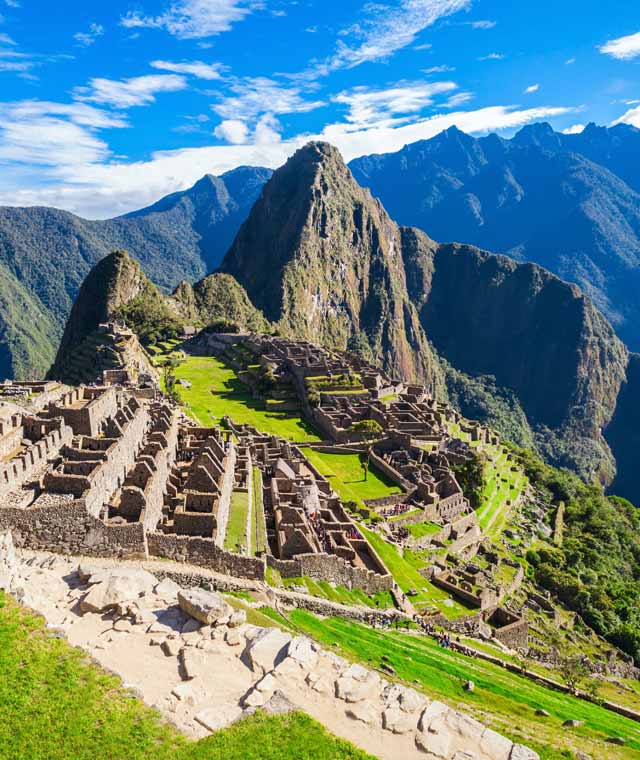By virtue of Law No. 28251; Law against sexual abuse and exploitation”, which incorporated user-client crimes and sexual exploitation of children and adolescents in the field of tourism; We consider the MINIMUM COMMITMENTS TO BE ASSUMED BY ALL TOURIST SERVICE PROVIDERS In order to counteract the sexual exploitation of children and adolescents in travel and tourism, tourism service providers shall adopt a Code of Conduct to be observed by their legal representatives, directors and administrators. In order to counteract the sexual exploitation of children and adolescents in travel and tourism, tourism service providers shall adopt a Code of Conduct to be observed by their legal representatives, directors and administrators, employees and contractors linked to the provision of tourism services, in order to enforce the obligations under Law 28251, as well as to prevent the behaviors typified in the same law and also to incorporate the following minimum control measures:



